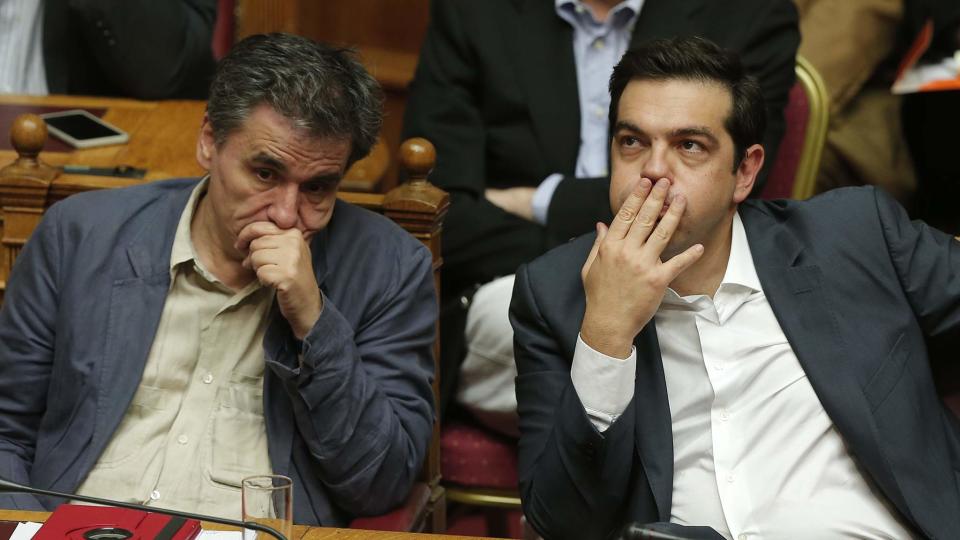Why Is The Greek Bailout Taking So Long?

Angela Merkel admitted she had "never seen such days of drama" as those leading up to today's vote in the German parliament to kickstart negotiations on a third Greek bailout.
It certainly feels as though the route to establish another cash lifeline, likely to top €86bn (£60bn), has been tortuous and at times fractious but the outcome of today's national government votes was never really in doubt.
Although some within Mrs Merkel's Christian Democratic Union party and its sister Christian Social Union group had indicated they would vote against or abstain, the vote was passed by 439-119.
The Chancellor runs a grand coalition with the centre left Social Democratic Party which accounts for a formidable 503 out of the 630 sitting politicians in the German parliament (one fewer because of the sudden death of young government spokesman Philipp Missfelder).
Votes had already passed in Finland and France while Austria, Latvia and Estonia are also likely to give their stamp of approval later today.
That's because the alternative is almost certain default and a disorderly Greek exit from the euro, with all the unpredictable knock-on effects that may have for the eurozone and wider global economy.
And remember this was not a vote on the final deal, just the starting pistol for talks to being able to access funds from the EU's permanent bailout fund the European Stability Mechanism or ESM, which could take months.
The immediate funding crisis facing Greece has also had to be addressed.
The European Central Bank has agreed to allow more cash to flow into the Greek banking system temporarily, while Europe is tapping an emergency loan fund to help the beleaguered government pay its debts next week.
So if Europe has decided to throw this buoyancy aid to Athens (albeit with stringent conditions), why is this taking so long?
It's a combination of the lumbering EU machinery and individual constitutions, but in many respects the brakes are understandable.
Although firewalls have been (mostly) constructed to protect contagion from spreading, sovereign governments are being asked to increase their exposure to a country the problems of which are legion.
Take Latvia for example. The average standard of living is much lower than in Greece, yet its taxpayers are watching more money being used to prop up the country where the debt mountain continues to grow and according to the IMF could reach 200% of everything it produces.
So for political reasons this has to take its course, but every day of uncertainty adds to the country's woes.

 Yahoo News
Yahoo News 